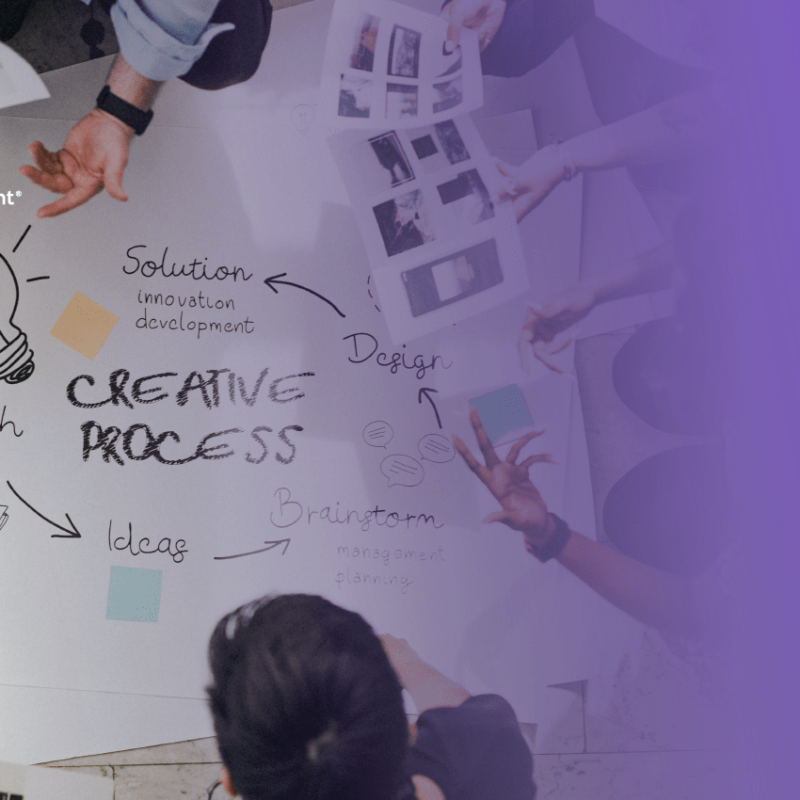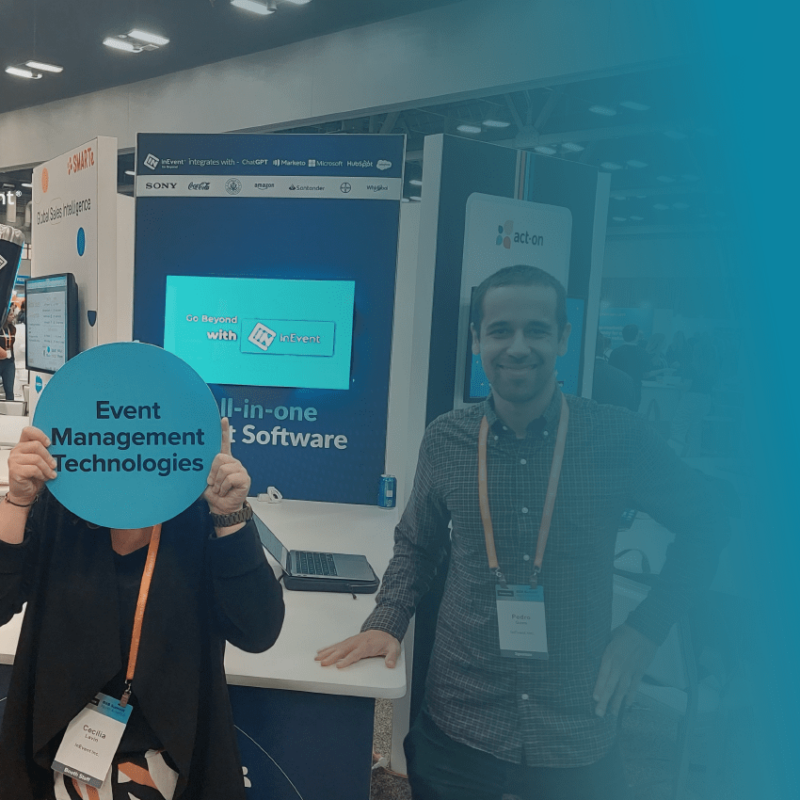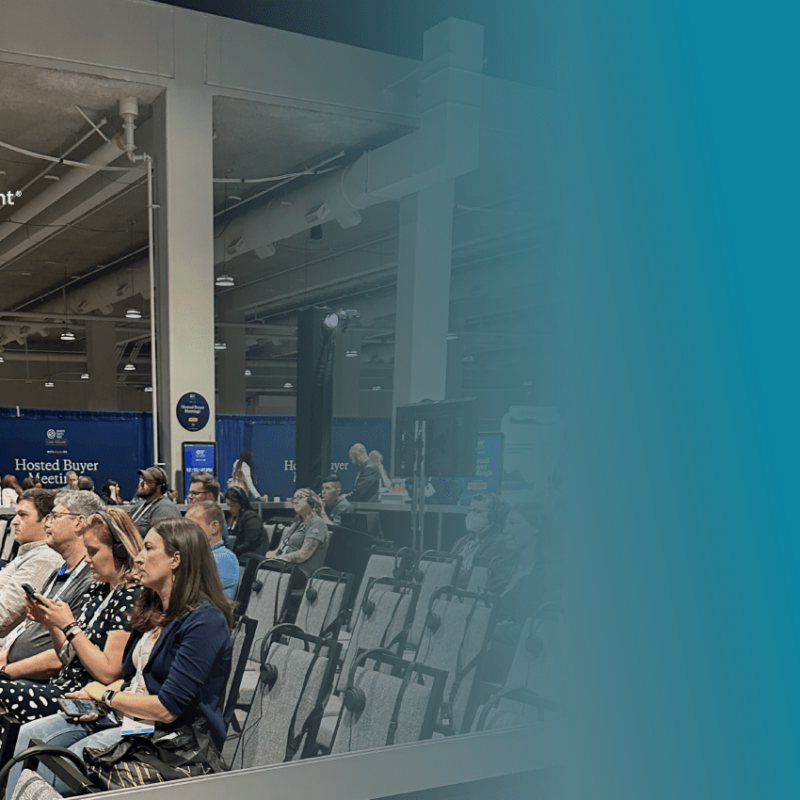Immersive Hybrid Events: Redefining Experiences with Advanced Event Management Features
Professional events are golden opportunities for networking and prospecting.
However, in-person events can be limiting due to geographic location. Virtual events can also feel limiting and impersonal.
Thankfully, there’s a middle ground between these event configurations.
Hybrid events.
These hybrid events blend the best of both worlds. They incorporate elements of in-person events with the accessibility of virtual events.
This is only possible thanks to certain advanced event management features.
In this article, we’ll discuss some of the best and most important advanced features that make hybrid events accessible.
Ready to learn more?
Let’s get started.
What are hybrid events?
A hybrid event is an advanced option for event management, fusing elements of an in-person event with the accessibility of a virtual. There’s an in-person component for those who can attend, while those who can’t have the option of participating virtually.
It makes the event accessible to everyone who wants to attend, providing options based on preference and circumstance.
Of course, these events are only possible with the right technology, as the following section will explain.
The best advanced event management features
If you’re considering holding a hybrid event, you’ll need the right tech features to ensure every attendee can get the most out of every moment.
Here are some of the most beneficial tech advancements in the hybrid event management space.
1. Virtual event spaces
Virtual reality environments have changed the online meeting space game.
Professionals worldwide use virtual spaces in the Metaverse. They create offices, co-working environments, conference rooms, and special event spaces.
You can create your virtual event space that mimics the look and feel of the space your in-person attendees are in. In this virtual environment, online attendees can explore at their leisure. They can also interact with one another, visit booths, and attend lectures.
If the attendee uses a virtual reality headset, this can be a completely immersive experience. They can simply turn their head to look at everything your space has to offer as though they’re physically present.
2. Content delivery systems
Content delivery systems are vital to the effectiveness of any hybrid or virtual event. That’s why event planners use event streaming and monitoring platforms like Advanced Event Mesh.
Some of the content delivery tools you should consider using for virtual event attendees include:
- Live-streaming software
- Interactive polling
- Breakout rooms
- Direct messaging
- SMS message blasts
The key to making content delivery systems work in a hybrid event environment is consistency. Make sure that the experience is the same for your in-person and virtual attendees.
You can use the same delivery systems to provide content to in-person attendees.
For example, SMS blasts and interactive polls aren’t just for virtual guests. Send them to every attendee. This creates a streamlined, equal experience for everyone.
3. Password manager
One of the most relevant and useful features for an immersive hybrid event is a password manager.
Password manager software applications securely store and manage passwords for different online accounts. They help users create strong, unique passwords, autofill them when logging in, and sync them across multiple devices.
This isn’t the typical software you might think of when planning a hybrid event. But there are some creative applications of this tech.
A password manager can enhance the security and convenience of hybrid events. It does this by letting attendees access online resources without compromising personal information.
For instance, with a password manager, attendees can:
- Join a virtual breakout session with their credentials
- Access the event agenda and materials with their login details
- Unlock exclusive content in specific panels
- Participate in polls and surveys with their email addresses
A password manager can also reduce the risk of cybercrime. This includes phishing attacks, identity theft, and data breaches. These costly risks may compromise the privacy and trust of hybrid event participants.
4. Magic links
If you want an alternative to passwords, a feature that can enhance the immersive hybrid event experience is magic links.
Magic links send a URL with an embedded token via email or SMS to authenticate users without passwords. This makes the login process more convenient and secure for on-site and virtual attendees alike.
Your attendees won’t have to remember or enter a password to access the event, removing a potential obstacle.
Magic links also create personalized and dynamic content for different audiences.
This includes sending relevant information, offers, or invitations based on preferences and behaviors.
For instance, event organizers can send a welcome email with a link to a survey. The survey collects attendee feedback or sends a follow-up email with a link to something valuable like a webinar.
Magic links can also integrate with other event platform features.
These include:
- Live chat
- Polls
- Quizzes
- Gamification elements
5. Reverse ETL
In hybrid events, a Reverse ETL (Extract, Transform, Load) is an asset.
This tech advancement seamlessly integrates in-person and virtual components. It’s one of the most important advancements both for the attendees themselves and the event organizers.
With real-time data integration, Reverse ETL facilitates the creation of comprehensive customer profiles. It does this by aggregating data from various channels.
Incorporating AI headshot recognition can add a visual element to these profiles, providing a more holistic and personalized understanding of your customers.
This unified perspective provides a slew of valuable data, including attendee preferences, historical interactions, and engagement levels across virtual and in-person events.
Personalized attendee experiences are possible through tailored recommendations. Add them to custom event calendars or event schedules.
Event organizers and businesses can leverage Reverse ETL to analyze attendee data. This helps them offer personalized suggestions for virtual and in-person experiences.
This includes session recommendations, networking opportunities, and content suggestions aligned with individual preferences.
Through the implementation of Reverse ETL in hybrid events, you can also unlock the potential of data to elevate attendee experiences. This includes optimizing event planning and fostering continuous improvement in event strategies.
For those looking to further refine their data integration practices, transitioning your systems, such as from SQL Server to MySQL, can enhance data handling efficiencies significantly. Learn how to effectively convert SQL Server to MySQL, which can be a strategic move to support more complex data scenarios in your events.
You’re doing more than providing consistent, personalized experiences to guests. You’re farming valuable data to incorporate into future event decisions.
Wrap up
Hybrid events are the future. They blend tech advancements with actual in-person experiences.
This encompasses all aspects of event management.
By implementing the tech features listed above, you’ll be able to provide seamless execution of events for attendees. This includes providing consistent, personalized experiences. At the same time, you can gather valuable data for follow-ups and future planning.
Here’s to your success!
Looking for all-in-one Event Management Software for your future hybrid events? Get started with InEvent today.
Kelly Moser is the co-founder and editor at Home & Jet, a digital magazine for the modern era. She’s also the content manager at Login Lockdown, covering the latest trends in tech, business and security. Kelly is an expert in freelance writing and content marketing for SaaS, Fintech, and ecommerce startups.











